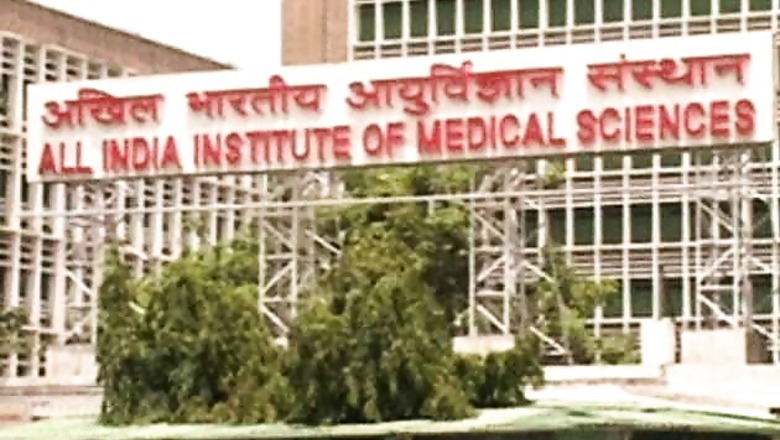
views
New Delhi: Doctors at the country's premier health institute AIIMS have devised a new minimally invasive surgical technique for treating a severe form of epilepsy, especially in children.
The procedure involves a complete unilateral hemispheric disconnection of the brain through minimally invasive endoscopy-assisted approach.
The technique, developed by Dr P Sarat Chandra, Professor of Neurosurgery at All India Institute Of Medical Sciences (AIIMS), Delhi has been published in reputed journals and presented at multiple international and national meetings.
"Conventionally, hemispherotomy is a very complex surgical procedure, which involves a large cranial incision, followed by a major surgery where an entire affected hemisphere is either removed or disconnected from the healthier opposite side.
"This technique allows the entire procedure to be performed with the use of an endoscope through an incision just of size 4X3 cm. In addition, the entire surgery is performed using neuronavigation, a sophisticated computer aided device along with the use of brain suite, where MRI is performed immediately after surgery to confirm complete disconnection," explained Dr Chandra.
This technique, Dr Chandra said, is usually performed on young children who find it difficult to tolerate large openings and blood loss.
"Furthermore, the children on whom these procedures are performed are very sick, sometimes having several hundred seizures a day. This is because a whole hemisphere is diseased and is generating severe epilepsy," Dr Chandra said.
Prof. Manjari Tripathi of neurology, who identifies these patients by pre-operative work-up, said, "If we look at the anatomy of the brain, it has two hemispheres connected by bridge of tissue called corpus callosum. In most of the cases, where we perform surgery for epilepsy, the focus is just a few centimetres large."
"In these cases, one whole hemisphere is affected, diseased and performs no other function apart from just throwing seizures. Most of the normal functions of that hemisphere has been shifted to the opposite side by a phenomenon called brain plasticity. Thus the patient is actually functioning on just one hemisphere," he said.
"We have been performing hemispheric disconnection surgeries for over more than a decade now. We would expect that these patients would be severely crippled. But surprisingly, these children improve very well. In fact one of our oldest patients is around 18 years now and lives a very normal and healthy life except for a mild weakness on one side," Tripathi said.
Professor BS Sharma, Head of Department of Neurosurgery, said that this procedure was initially performed on five children, which was published in the reputed journal 'Neurosurgery'.
"Now we have over 15 cases, where this procedure has been performed with very good results. Epilepsy affects approximately ten million people in India, approximately 1 to 2 million of these people will have drug resistant epilepsy which means they will not respond to medicines," he said.




















Comments
0 comment